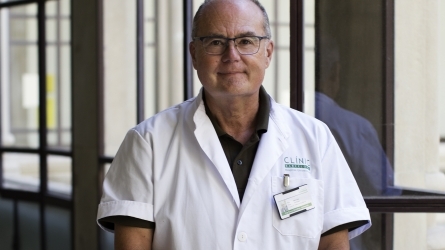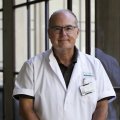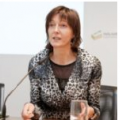
Lessons from the pandemic
Description
The academic opening conference of the UPV/EHU Summer Courses will be on the lessons of the pandemic and will be given by Antoni Trilla, member of the COVID-19 Technical Scientific Committee.
At the end of the conference, the artist Nisa Goiburu will lead a performance.
The most important lesson of this pandemic has been to draw attention to our inability to protect all of us.
The great lesson of this pandemic has been to draw attention to the importance of infectious diseases, to the indifference with which they are usually regarded and to our inability to protect all of us effectively.
An article published in the journal Science, entitled "The Lessons of the Pandemic", provides us with a good summary of the situation.
The pandemic that has affected the entire world is unprecedented. Never before has there been a catastrophe that began so abruptly and was so devastating and universal. One of the most striking things about this pandemic is the mystery surrounding its emergence. No one seemed to know what kind of disease it was, where it really came from and how to stop it. Science, which has brought other infectious diseases under control, seems to still lag behind this disease. It has been assumed that the disease could be controlled in the same way as other infectious diseases, which in themselves have never really been effectively controlled.
There are three main factors that can influence the prevention of the disease. The first is the relative indifference of the general population. People do not assess well and sometimes do not recognise the risks they take. The varied spectrum of symptoms, from the common cold to severe pneumonia, can confuse and hide the danger. For most, the disease is more of a nuisance than a danger. Many people recover without treatment. The second factor is the nature of the individual prevention and control measures. Respiratory secretions are the main route of contagion when they are projected into the air, and do so without suspicion in many cases. Control methods are therefore of limited value. It is not very common in our nature and way of thinking to think about how to protect others.
The third factor is the high contagiousness of the disease. It has a short incubation period and the ability to be transmitted before symptoms begin, and asymptomatic carriers are specially problematic.
No one can speak with authority about the disease. When we have all the evidence, data and facts, some of the ideas that we now hold will be modified. The pandemic is still too close to be able to assess it in all its magnitude and impact. The enormous amount of accumulated data needs to be analysed and studied before a real decision can be made on the effectiveness of the employed control measures. Until this is done, it will be impossible to determine how many people have been affected, how many have died and how many have after-effects, let alone how these data relate to the preventive measures employed. It will be months and perhaps years before all the ongoing studies on the pandemic will be able to reach a conclusion.
The tolosarra artist Nisa Goiburu will conduct the performance "Relearn in motion" together with the dancer Garazi Egiguren and the saxophone quartet of Musikene Sua Sax, who will play the music.
Objectives
.
Activity directed to
- All public
Program
25-06-2021
“Ongietorria / Bienvenida“
- Itziar Alkorta Idiakez UPV/EHUko Uda Ikastaroen zuzendari akademikoa / Directora académica de los Cursos de Verano de la UPV/EHU
- Rafael Pardo Avellaneda BBVA Fundazioaren zuzendaria / Director de la Fundación BBVA
“Hitzaldiaren aurkezpena / Presentación de la conferencia“
- Rafael Pardo Avellaneda BBVA Fundazioaren zuzendaria / Director de la Fundación BBVA
“Lecciones de la pandemia“
- Antoni Trilla García Bartzelonako Unibertsitatea / Universitat de Barcelona - Osasun Publikoko katedraduna eta COVID-19 Batzorde Zientifiko Teknikoko kidea / Catedrático de Salud Pública y Miembro Comité Científico Técnico COVID-19
Eva Ferreiraren parte hartzea. UPV/EHUko Uda Ikastaroen presidenta eta UPV/EHUko errektorea / Intervención de Eva Ferreira, Presidenta de los Cursos de Verano de la UPV/EHU y rectora de la UPV/EHU
Performancea Nisa Goiburu artistarekin eta Garazi Egiguren dantzariarekin eta Sua Sax Musikeneko saxofoi laukotearekin / Performance con la artista Nisa Goiburu y la bailarina Garazi Egiguren junto con el cuarteto de saxofones de Musikene Sua Sax
Speakers

Antoni Trilla García
Miembro Comité Científico Técnico COVID-19
Professor of Public Health and Dean of the Faculty of Medicine at the University of Barcelona. Specialist in Internal Medicine and in Preventive Medicine and Public Health. Head of the Department of Preventive Medicine and Epidemiology at Hospital Clínic. Research Professor at the Barcelona Institute for Global Health (ISGlobal). Coordinator of the COVID-19 Vaccination Programme at Hospital Clínic and the hospital's reference area (AIS Esquerra Eixample). He has published 226 articles in indexed national and international biomedical journals, 50% of them in the first quartile of the SCI. Scientific advisor to the Department of Health of Catalonia, to the Ministry of Health of Spain, the ECDC and the WHO. Member of the Governing Board of the Barcelona College of Physicians. Member of the Institut d'Estudis Catalans Member of the Reial Acadèmia de Medicina de Catalunya. Awarded for Professional Excellence - College of Physicians of Barcelona.

Itziar Alkorta Idiakez
Uda Ikastaroak / Cursos de Verano, Zuzendari akademikoa / Directora académica
She holds a PhD in Law and is a lecturer in Civil Law at the UPV/EHU. Her main line of research is bioethics, a subject on which she has published several monographs and scientific and dissemination articles. She has participated in 4 European research projects of the VI and VII European Framework Programme, as well as in multiple research projects of the National Programme. She has been a visiting professor at the Hastings Center for Bioethics in New York, the Center for Bioethics at the University of Philadelphia and the University of Bordeaux. She was Secretary General of Eusko Ikaskuntza, and later of Jakiunde, Academy of Sciences, Arts and Letters. Vice-rector of quality and teaching innovation at the UPV/EHU between 2008 and 2012, and responsible for the development of the educational model, as well as quality programmes, and training and evaluation of university teaching staff. Between 2013 and 2015, she was Deputy Minister of Universities and Research of the Basque Government.

Rafael Pardo Avellaneda
Venue
Live online
Live online




